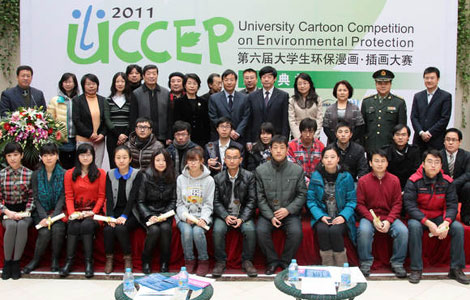WASHINGTON - The US Treasury Department on Tuesday declined to name China as a currency manipulator, saying that it would closely monitor the pace of appreciation of renminbi (RMB).
The latest Semi-Annual Report to the Congress on International Economic and Exchange Rate Policies released on Tuesday highlighted the need for greater exchange rate flexibility, most notably by China, but also in other major economies.
"Based on the ongoing appreciation of the RMB against the dollar since June 2010, the decline in China's current account surplus, and China's official commitments at the G-20, APEC, and the US-China Strategic and Economic Dialogue (S&ED) that it will move more rapidly toward exchange rate flexibility," the Treasury concluded that China did not meet the standards of a currency manipulator.
"Treasury will closely monitor the pace of RMB appreciation and press for policy changes that yield greater exchange rate flexibility, a level playing field, and a sustained shift to domestic demand-led growth," noted the Treasury.
The latest report, which was originally scheduled to be sent to the Congress on October 15, was delayed as the Treasury cited a series of international conferences to assess progress.
The US Omnibus Trade and Competitiveness Act of 1988 requires the Treasury to provide reports on whether countries manipulate the rate of exchange between their currency and the United States dollar for purposes of preventing effective balance of payments adjustments or gaining unfair competitive advantage in international trade.
"Since the authorities decided in June 2010 to allow the exchange rate to appreciate, the renminbi has appreciated by a total of 7.5 percent against the dollar, as of Dec 16," said the report.
"Taking into account the higher rate of domestic inflation in China than in the United States, the renminbi has appreciated against the dollar on a real, inflation-adjusted basis by nearly 12 percent since June 2010 and nearly 40 percent since China first initiated currency reform in 2005," according to the report.
The Treasury held that the appreciation of the RMB to date was "insufficient" and more progress was needed.
Private sector forecasters projected that the US economy would expand by 2.25 percent in 2012, while boosting growth and creating jobs in the near term remained a key priority for the Obama administration.
The administration was firmly committed to putting US government finances on a sustainable trajectory, said the Treasury.










